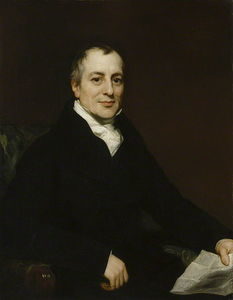

In a comment on my most recent post, co-blogger Scott Sumner makes a good point:
Ricardian equivalence should probably be called “Barro equivalence”, as the economics profession generally names concepts after their modern (re)discoverer.
That reminds me of another fun story.
Background: Barro’s article rediscovering Ricardian equivalence was in the Journal of Political Economy in 1974. (He didn’t mention Ricardo in his article.) I had my head down that year, starting to work on my Ph.D. dissertation and so I completely missed it. I did know of Barro because we had read some work by Barro and Grossman in my macro classes at UCLA. He and Grossman wrote those pieces when, I think, Barro could arguably be called a Keynesian.
In June 1975, I was invited to my first Liberty Fund colloquium. Svetozar Pejovich organized it at Ohio University in Athens, Ohio, and I attended. There were a number of economists there whom I regarded as economic stars. Because of the story I’m about to relate, I won’t give the name of the particular economic star. One Liberty Fund rule is the Chatham House rule, which says that you’re not allowed to report on something someone else said without that person’s consent. Call this person “X.”
In a discussion about deficits, X, kind of out of the blue, criticized Bob Barro for that article, saying he was reinventing the wheel. (Bob Barro wasn’t one of the participants.) He then explained to the group pretty well what the article said and seemed to be critical of two things: (1) Barro’s reinventing the wheel and (2) the actual point Barro, and Ricardo, had made.
I didn’t get this guy’s point, so I did what I always do in such circumstances: asked a question.
“X,” I said, “I’m trying to figure out your criticism: is it that Barro reinvented the wheel or is it that the wheel isn’t round?” I can’t remember getting a clear answer but I think it was basically that the wheel wasn’t all that round.
Fast forward to September 1975, when I arrived at the University of Rochester as an assistant professor in the Graduate School of Management (now the Simon School.) The president of the university, Robert Sproul, had a really nice reception and dinner for all the new hires across campus. I found myself sitting at the same table as Bob Barro. He had arrived at the economics department as, if I recall correctly, an associate professor with tenure. So I told him the story without telling the question I asked. Then, I said, I asked X “is the wheel round?” Barro laughed out loud. We later became close and I’ve always enjoyed his laugh.
By the way, here are some fun reminiscences by Barro about his 1974 article.
And here is my biography of Ricardo in David R. Henderson, ed., The Concise Encyclopedia of Economics.

READER COMMENTS
Thomas Lee Hutcheson
Aug 20 2022 at 11:11am
So which was it? Was the wheel round or not? 🙂
Thomas Lee Hutcheson
Aug 20 2022 at 11:19am
Help with the analysis here. Doesn’t Ricardo/Barro equivalence depend on continuous equilibrium? That would connect it to RBC theory.
Don Boudreaux
Aug 20 2022 at 1:09pm
There’s another, deeper reason why the so-called “Ricardian equivalence” should – as Scott says – instead be called “Barro equivalence”: Ricardo himself did not endorse what we now call “Ricardian equivalence.” Gerry O’Driscoll set straight the historical record on this matter in his February 1977 Journal of Political Economy paper titled “The Ricardian Nonequivalence Theorem.” Here’s the abstract of Gerry’s paper:
David Henderson
Aug 20 2022 at 2:35pm
Interesting. That means that the person at the 1975 colloquium should not have accused Barro of re-inventing the wheel.
Lauren Landsburg
Aug 20 2022 at 3:18pm
Following up on Don Boudreaux’s comment on O’Driscoll’s 1977 JPE paper:
There is a statement of Ricardian equivalence in Ricardo’s own work, but it is a footnote in a chapter wherein Ricardo otherwise primarily argues that Ricardian equivalence does not hold.
For the record, though, here is Ricardo’s footnote (reprinted in Liberty Fund’s The Works and Correspondence of David Ricardo, Piero Sraffa ed., Vol. II, Ch. VII, Sec. X, pp. 444-445, footnote 309). In the footnote, he is questioning and debating an argument made by Malthus:
Certainly Barro rather than Ricardo should be credited with illuminating the conditions for Ricardian equivalence to hold; and, if those conditions don’t hold, whether there is a resulting burden of the debt, or–less-frequently discussed–a resulting benefit of the debt. Along with all kinds of other consequences of Ricardian equivalence holding or not holding.
But, neither Barro equivalence nor Barrovian equivalence are terms likely to catch on.
David Henderson
Aug 21 2022 at 8:13pm
Thanks, Lauren.
Jeff Hummel
Aug 21 2022 at 3:51pm
I’ve often wondered why Barro gets so much credit for re-introducing the concept of Ricardian Equivalence. I first encountered the concept, not under that name, in the second edition of Don Patinkin’s Money, Interest, and Prices, published in 1965, nearly a decade before Barro’s famous article. Having read that book for a graduate macro course, I assume it was a pretty standard text at the time. And in a footnote, Patinkin traces the concept back to Milton Friedman. Admittedly, Patinkin only introduced the concept as a theoretical possibility and made no effort to empirically verify it.
David Henderson
Aug 21 2022 at 8:13pm
Interesting. Thanks.
Comments are closed.